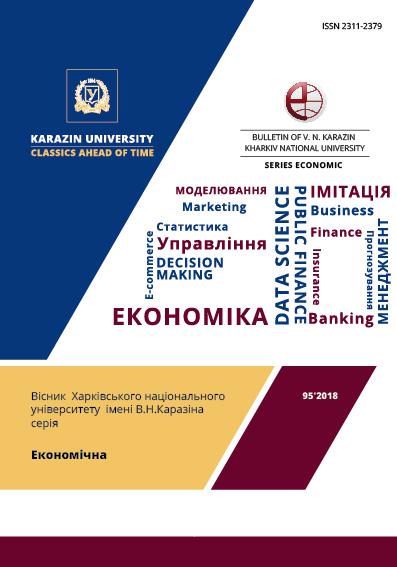Методологічний принцип міждисциплінарності в історії економічної науки
Анотація
Економічна наука протягом своєї історії знаходилась під впливом принципів і методів інших, більш точних наук. Цей вплив простежується у концепціях і класичної, і неокласичної шкіл. Остання, яка трактувала економічні явища та процеси з суб’єктивно-психологічної точку зору, сприяла формуванню особливого наукового напряму – економічної психології.
Інституціональна школа, яка розглядала економіку як систему, що еволюціонує, породила такий міждисциплінарний напрям як економічну генетику.
Вплив на економічну думку точних наук проявився не тільки у широкому використанні математичного моделювання, але й у звертанні до аналогії з фізичними процесами, що сформувало ще одно міждисциплінарне утворення – еконофізику.
Зазнаючи вплив та запозичуючи методи дослідження природничих та точних наук, економічна наука, в свою чергу, «вторгається» на територію інших, насамперед соціальних, дисциплін (соціології, політології, історії)що породило формування окремих напрямів економічного аналізу: економіка родини, теорія суспільного вибору, економічна історія та ін.
Такий підхід, який не завжди позитивно сприймався фахівцями суміжних дисциплін, отримав назву «економічний імперіалізм», представниками якого стали послідовники як неокласики, так і нової інституціональної теорії.
Претензії різних шкіл і напрямів на роль «основної течії (mainstream), що супроводжують всю історію економічної науки, все більш змінюється концепцією методологічного плюралізму, що передбачає співіснування різних теоретичних позицій, і міждисциплінарний підхід є важливим елементом формування такої традиції.
Це висуває нові вимоги до якості економічної освіти. Сучасний економіст повинен володіти знаннями у галузі інших наук і володіти аналітичним апаратом їх використання.
Економічна наука на постнекласичному етапі свого розвитку широко використовує методологічні принципи та аналітичний інструментарій як точних, так і гуманітарних наук і здобуває на цьому шляху значних успіхів. Міждисциплінарні зв’язки дозволяють розкрити більш глибокі закономірності і виводять на якісно новий рівень наукового знання.
Хоча міждисциплінарність не завжди демонструє ефективні результати, її можна розглядати як один з перспективних способів вирішення складних проблем сучасної епохи.
Завантаження
Посилання
Lisovitsky V. M. (2009). History of the economic doctrines. Tsentr uchebnoi literatury (Centre of the educational literature) (in Ukrainian).
Keynes D.M. (1993). General theory of Employment, Interest, and Money. Antologija economicheskoi klassiki (in Russian).
Katona G. (1975). Psychological economics. Elsevier Scientific Publishing Company. New York.
Kaneman D. (2005) Take a decision in uncertainty. Rules and prejudices. D/ kaneman,P. Slovic, A. Tversky. Kharkov. Gumanitarny tsentr (in Russian).
Kondratev N. D. (1989) Problems of economic dynamics (in Russian).
Rosser-young.(2009). Present and future of econophysics. Voprosy economici № 11 (in Russian).
Kusmartsev Feo.(2011) When rich gets richer there arises financial crisis and Bose – Einsteien condensation in a wild economy// 3rd International conference on Econophysics. Loughborough University/ September 24–28.
Polterovich V. Economics – aggressive science. URL: https//www chaskor.ru/econofizika (in Russian).

